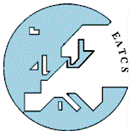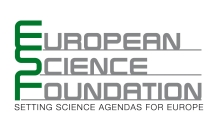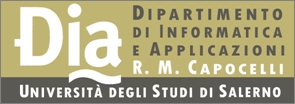|
| |  |
European Association for Theoretical Computer Science |  |  |
European Association for Theoretical Computer Science (EATCS)
is an international organization founded in 1972.
Its aim is to facilitate the exchange of ideas and results among
theoretical computer scientists as well as to stimulate cooperation
between the theoretical and the practical community in computer science.
"Automata: from Mathematics to
Applications" (AutoMathA) is one of the current Research Networking Programmes
supported by the European Science Foundation (ESF). AutoMathA project proposes a set
of co-ordinated actions for advancing the theory of automata and for increasing its
application to challenging scientific problems (Duration: 2005-2010).
| |
 |
European Science Foundation |
 |
 |
The European Science Foundation
(ESF) was established in 1974 to create a common European platform for cross-border cooperation
in all aspects of scientific research. With its emphasis on a multidisciplinary
and
pan-European approach, the Foundation provides the leadership
necessary to open new frontiers in European science.
Its activities include providing science policy advice
(Science Strategy); stimulating co-operation between researchers
and organisations to explore new directions (Science Synergy); and the administration of externally funded
programmes (Science Management). These take place in the following areas: Physical and engineering sciences;
Medical sciences; Life, earth and environmental sciences; Humanities; Social sciences; Polar; Marine; Space;
Radio astronomy frequencies; Nuclear physics. Headquartered in Strasbourg with offices
in Brussels, the ESF's membership comprises 75 national funding agencies, research performing agencies and academies
from 30 European nations. The Foundation's independence allows the ESF to objectively
represent the priorities of all these members.
The MIUR project (PRIN) "Mathematical aspects and emerging applications of automata and formal languages"
is a national project (national scientific coordinator: A. Restivo, local scientific coordinator for
the Salerno unit: C. De Felice). This research project focuses on formal languages and automata and
aims at advancing the theory of these topics and their applications to technological and scientific
problems.
| |  |
Dipartimento di Informatica e Applicazioni |
 |
 |
The "Dipartimento di Informatica e Applicazioni"
was founded in 1983,
from the group of Cybernetics directed by Edoardo Caianiello.
The Degree course of Computer Science has been among the
first ones in Italy.
One of the principal promoters of the scientific development
of the Computer Science in the University of Salerno was Renato Maria Capocelli.
Different research lines are
now consolidated, among which information theory,
design of parallel and distributed algorithms,
cryptography, model checking, codes, formal languages,
unconventional models of computation,
distributed multimedia systems and
computer-supported cooperative work,
data compression.
The "Faculty of Science"
was founded in 1972,
thanks to the work of Edoardo Caianiello, full professor of Theoretical Physics
coming from the University of Naples.
Currently, the Faculty includes the areas of Chemistry, Physics, Computer Science, Mathematics,
Environmental Sciences and Biology.
Recently moved to the Campus of Fisciano, the Faculty enjoys of a modern
structure, that represents a point of reference
for thousand of young people today.
| 















